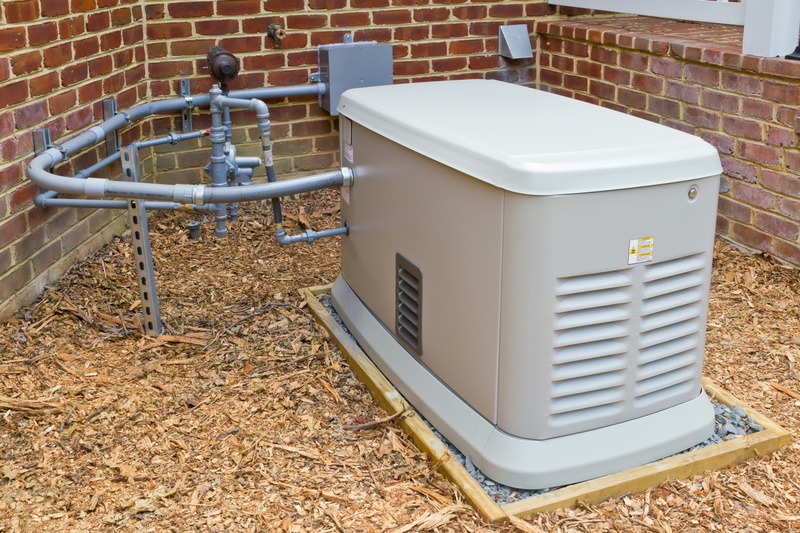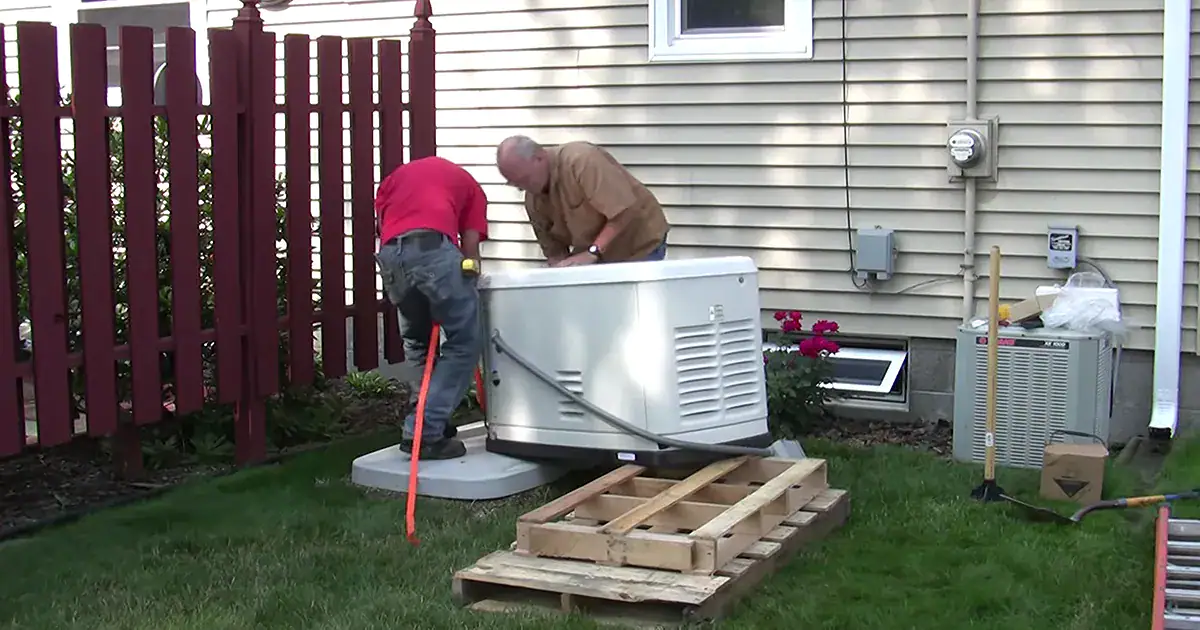What are the Top Solar Tax Credits and Incentives You Can Claim in Australia in 2025?
Are you planning to install solar panels in 2025? In Australia, solar energy is not just a smart way to reduce electricity bills

Power outages can pop up out of nowhere because of stuff like bad weather, accidents, or even just routine maintenance. When the power goes out, it can seriously leave you and your family in the dark—and not in a fun way!
But with a whole house generator, your home can keep the lights on and stay comfortable, so you won’t miss a thing when the blackout hits.
Home use portable generators are normally rated between a few thousand watts, on average, they are only capable of supporting 1 or 2 devices simultaneously. Again, even the high capability portable models are likely to fail where you have several crucial power appliances such as the refrigerator, heater, or cooler.
Power Tip: Verify the wattage of some appliances that are needed to work whether it is at the house or not to find out whether a portable generator is capable enough.
Operating a portable generator requires extreme care due to the following risks:
Carbon Monoxide Poisoning: Portable generators also produce carbon monoxide (CO), a lethal colorless and odorless gas. Having a fuel burning appliance, operating one inside or in a closed space can lead to the accumulation of CO that poses significant health risks.
Overloaded Extension Cords: Extension cords are employed by most people in connecting portable generators to the appliances. Nonetheless, cords can easily melt and cause sparks that lead to fire if they are heavily loaded..
Fire Hazards: Many portable generators get very hot during operation and may cause fires if not managed properly, especially during fuel refills.
Safety Tip: Never use portable generators indoors, 20 feet away from windows and doors, and never overload cords.
Traditional portable generators can only operate for a short time of anything between 6 and 12 hours and then require fueling. In protracted blackouts, this means that for more fuel to be added, one may have to go outside during hurricanes and the like. Some of the premium brands are capable of staying for up to 18 hours but as you will find out this is not suitable for long term usage.
Convenience Tip: If you want permanent power during the blackout, a home standby generator or a whole house generator is more appropriate.
Whole house generators address the downsides of portable models by providing:
Greater Capacity: They can power your entire home, ensuring comfort and safety.
Safer Operation: Installed permanently, they connect directly to your home’s electrical system and don’t require extension cords or constant refills.
Longer Run Time: These generators can run for days, giving you peace of mind during prolonged outages.
Automatic Switching: An automatic transfer switch ensures your generator activates immediately during a power outage.
Quieter Operation: Whole house models typically operate 10 decibels quieter than portable ones.
Extended Warranty: They often come with longer guarantees for years of reliability.
The size of the generator you choose should match your home’s power needs. Consider these factors:
Climate: Homes in extreme weather areas need higher wattage for heating or cooling.
House Size: Larger homes require more power, especially if you have many appliances.
Key Appliances: Check high-power equipment like sump pumps, HVAC systems, and kitchen appliances.
Tip: Use online generator sizing tools from companies like Cummins to find the perfect match.
Whole house generators run on various fuel types, each with its pros and cons:
1. Diesel: Diesel generators are generally affordable but can be noisy. Just a heads up, diesel fuel has been slightly more costly recently.
2. Propane: But propane is cleaner burning and does not degrade over time as does natural gas, which has a relatively short term expiration of one year. But propane tanks are consumed at less time compared to diesel tanks.
3. Natural Gas: In the meantime this can be the best choice if the house is already equipped by the natural gas line. Natural gas is environmentally friendly, free of contaminants, cheap, but needs a professional connection.
Tip: However, if you have a resource in natural gas, this is the most economical and prosaic option.

You can start by enquiring whether there is a permit needed in the region or whether a HOA has placed some restrictions. Requirements of permits, and requirements of the local authority may apply, and therefore consulting an expert in electrical technology may be of immense assistance.
Placement is key to safe and efficient operation.
Foundation: Generators typically need a concrete base. In flood-prone areas, they may require elevated bases.
Clearance: Ensure the area is free from obstructions like overhanging trees or nearby walls for safe exhaust.
Access: Choose a location near your fuel source for easy refueling and maintenance access.
Tip: Consult an electrician to select a spot that meets both code requirements and ease of access for future maintenance.
Do’s | Don’ts |
Choose a generator size that suits your home’s needs. | Don’t DIY the installation—always use a qualified electrician. |
Follow local regulations and obtain permits if needed. | Don’t install the generator too close to your home’s windows or doors. |
Schedule regular maintenance to ensure safe operation. | Don’t forget to test your generator occasionally to ensure it’s ready for emergencies. |
Pick a generator with an automatic transfer switch for convenience. | Don’t ignore the fuel source—choose what’s reliable and available for your area. |
An option you can never regret installing in your home is a whole house generator especially during blackouts. The safety, convenience, and power you have to continue to live your life in the same manner as you do when the grid is present.
So, when you’re set to install, just call up a pro to take care of it. SEQ Electrical knows their stuff and will make sure your generator installation goes off without a hitch. Don’t let a power outage surprise you—get ready, stay safe, and keep your home running without a hitch.
Are you planning to install solar panels in 2025? In Australia, solar energy is not just a smart way to reduce electricity bills
Solar panels are a smart way to save money on your energy bills and help the environment.
Power outages can pop up out of nowhere because of stuff like bad weather, accidents, or even just routine maintenance.
Power outages can pop up out of nowhere because of stuff like bad weather, accidents, or even just routine maintenance.